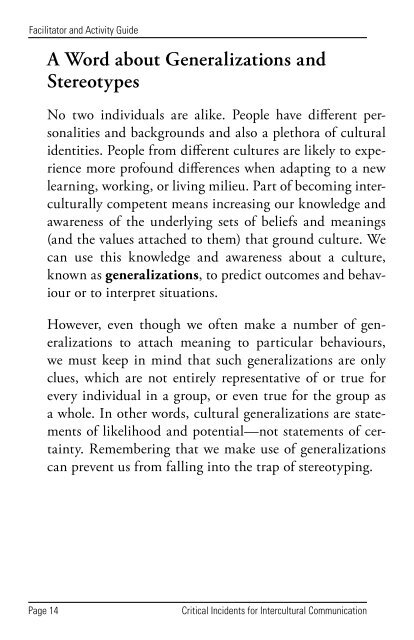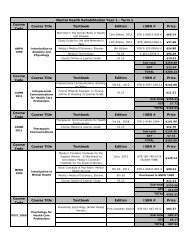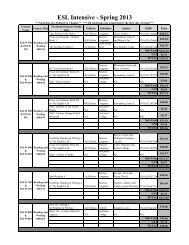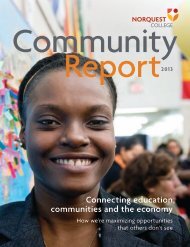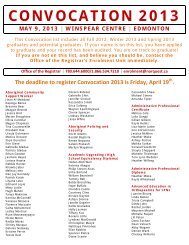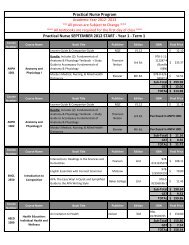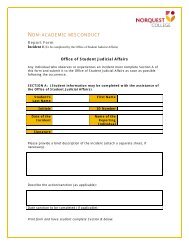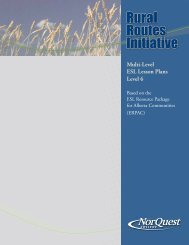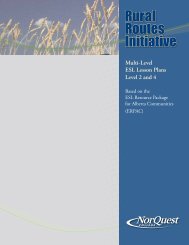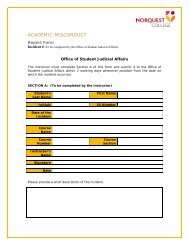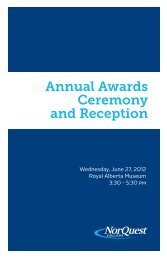Critical Incidents for Intercultural Communication - NorQuest College
Critical Incidents for Intercultural Communication - NorQuest College
Critical Incidents for Intercultural Communication - NorQuest College
- No tags were found...
You also want an ePaper? Increase the reach of your titles
YUMPU automatically turns print PDFs into web optimized ePapers that Google loves.
Facilitator and Activity GuideA Word about Generalizations andStereotypesNo two individuals are alike. People have different personalitiesand backgrounds and also a plethora of culturalidentities. People from different cultures are likely to experiencemore profound differences when adapting to a newlearning, working, or living milieu. Part of becoming interculturallycompetent means increasing our knowledge andawareness of the underlying sets of beliefs and meanings(and the values attached to them) that ground culture. Wecan use this knowledge and awareness about a culture,known as generalizations, to predict outcomes and behaviouror to interpret situations.However, even though we often make a number of generalizationsto attach meaning to particular behaviours,we must keep in mind that such generalizations are onlyclues, which are not entirely representative of or true <strong>for</strong>every individual in a group, or even true <strong>for</strong> the group asa whole. In other words, cultural generalizations are statementsof likelihood and potential—not statements of certainty.Remembering that we make use of generalizationscan prevent us from falling into the trap of stereotyping.Activity GuideFacilitator and Activity GuideBelow you will find diverse classroom activities that youcan adapt to your students, taking into account their levelof English proficiency, alongside their readiness and willingnessto initiate a conversation about cultural difference.As with all instructional materials, you will be able to designyour own classroom activities, adapting them to your teachingstyle, the learning styles of your students, and the environmentin which the teaching/learning takes place.Hence, the following list is by no means a finished product.We appreciate your feedback in contributing withmore activities. Your comments and ideas are an essentialpart of the ef<strong>for</strong>ts of <strong>Intercultural</strong> Education programs at<strong>NorQuest</strong> <strong>College</strong>.Page 14<strong>Critical</strong> <strong>Incidents</strong> <strong>for</strong> <strong>Intercultural</strong> <strong>Communication</strong><strong>Critical</strong> <strong>Incidents</strong> <strong>for</strong> <strong>Intercultural</strong> <strong>Communication</strong> Page 15


